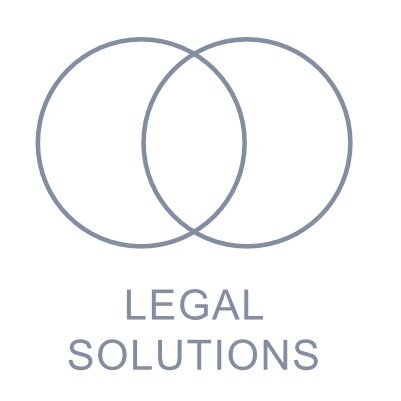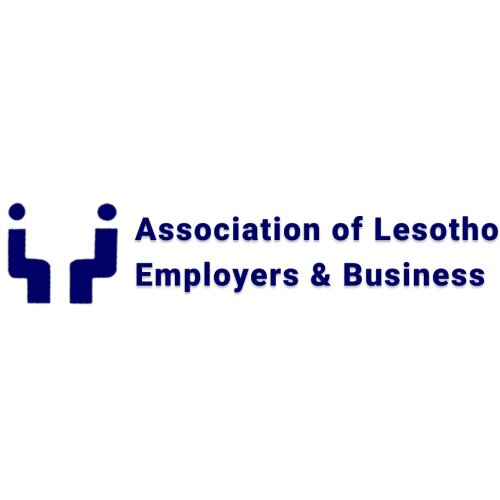Best Mining Law Lawyers in Lesotho
Share your needs with us, get contacted by law firms.
Free. Takes 2 min.
Or refine your search by selecting a city:
List of the best lawyers in Lesotho
About Mining Law in Lesotho
Mining Law in Lesotho regulates the exploration, extraction, processing, and export of mineral resources within the country. This sector is governed primarily by the Mines and Minerals Act of 2005 and subsequent amendments. The legal framework seeks to ensure responsible mining, protect the environment, and facilitate economic development. Lesotho is renowned for its diamond industry, but other minerals such as sandstone, clay, and sand are also subject to regulation. Mining activities in Lesotho must comply with national legislation and sometimes involve negotiations with local communities and government authorities.
Why You May Need a Lawyer
Engaging in mining activities in Lesotho can be complex due to regulatory requirements and the need to navigate various government approvals. Individuals or companies might require a mining law lawyer in situations such as:
- Applying for or renewing a mining license or permit
- Negotiating joint ventures or investment agreements
- Resolving land or mineral rights disputes
- Understanding regulatory compliance and environmental obligations
- Representing parties in disputes with the government or communities
- Advising on the import and export of minerals
- Assisting with tax, royalty, or revenue-sharing arrangements
- Dealing with environmental impact assessments and mitigation plans
- Handling mine closures or rehabilitation obligations
A lawyer with expertise in mining law can help mitigate risks, ensure compliance, and protect your interests throughout the mining process.
Local Laws Overview
Mining activities in Lesotho are primarily governed by the Mines and Minerals Act, 2005. The Act covers the application process for mineral rights, rights and obligations of license or permit holders, and measures related to environmental protection. Key aspects include:
- Licensing: Individuals or entities must apply for prospecting, mining, or retention licenses from the Ministry of Mining. Each type of license has specific conditions, requirements, and durations.
- Ownership: The Kingdom of Lesotho retains ownership of all mineral resources, but grants exclusive rights for exploration or mining through licensing.
- Community and Environmental Interests: License holders must engage communities and comply with environmental laws, including conducting Environmental Impact Assessments (EIA) before commencing operations.
- Royalties and Taxes: The law establishes royalty payments to the government based on the value of minerals extracted, alongside corporate and other applicable taxes.
- Dispute Resolution: Disputes can be resolved through negotiation, arbitration, or litigation, depending on the matter and agreements in place.
- Transparency and Reporting: Licensees must keep proper records and submit periodic reports to the government.
Before commencing any mining or exploration activity, it is essential to understand these regulations and seek appropriate advice.
Frequently Asked Questions
What licenses do I need to conduct mining in Lesotho?
You will need a relevant license issued by the Ministry of Mining, such as a prospecting license, mining license, or retention license, depending on your activity. Each license type has unique application requirements and obligations.
Who owns the minerals in Lesotho?
All mineral resources in Lesotho are owned by the Kingdom of Lesotho. Ownership of land does not automatically confer rights to minerals beneath the surface.
Is foreign investment allowed in the mining sector?
Yes, foreign individuals and companies can participate in Lesotho's mining sector, subject to complying with licensing requirements and local partnership arrangements in some cases.
What environmental obligations apply to mining companies?
Mining operators must conduct Environmental Impact Assessments (EIA) before starting operations and comply with approved environmental management plans to mitigate negative effects.
How are royalties and taxes calculated?
Royalties are calculated as a percentage of the gross sales value of minerals extracted, with rates specified in the Mines and Minerals Act. Companies must also comply with applicable tax laws.
What happens if I operate without a license?
Operating a mining venture without a valid license is illegal and can result in fines, imprisonment, and confiscation of equipment or minerals.
Can licenses be revoked or suspended?
Yes, licenses can be suspended or revoked for non-compliance with legal obligations, such as failing to pay royalties, breaching environmental conditions, or providing false information.
How are mining disputes resolved?
Disputes can be resolved through administrative review, arbitration, or the courts, depending on the nature of the dispute and the agreements between parties.
Are there special rules for small-scale miners?
Lesotho law makes provisions for small-scale mining, often with simplified application processes and obligations. However, these miners must still comply with basic safety, environmental, and reporting requirements.
What steps should I take before applying for a mining license?
You should conduct preliminary geological surveys, consult with relevant communities, prepare a business plan, ensure environmental compliance, and seek legal guidance to streamline your application process.
Additional Resources
If you need assistance or further information about mining law in Lesotho, you may consult the following resources:
- Ministry of Mining: The primary government body responsible for overseeing the mining sector, issuing licenses, and enforcing regulations.
- Lesotho Chamber of Mines: An industry body offering resources, support, and networking opportunities for mining stakeholders.
- Lesotho Revenue Authority: Provides information on taxation and royalty payments relating to the mining sector.
- Environmental Protection Agencies: Agencies that oversee mine-related environmental matters, including EIAs and compliance inspections.
- Legal Aid Clinics and Professional Law Firms: For direct legal advice, representation, or document preparation in mining law matters.
Next Steps
If you are considering mining activities or are involved in a mining-related legal issue in Lesotho, it is crucial to proceed carefully:
- Gather all relevant documentation related to your intended mining project or legal issue.
- Consult the Ministry of Mining for the latest policies and requirements.
- Schedule a consultation with a legal professional specializing in mining law to discuss your situation.
- Review your compliance with environmental, licensing, and community engagement requirements.
- Consider seeking advice from industry bodies or relevant government agencies listed above.
Early legal guidance can save time and costs and ensure your business or project meets all legal requirements in Lesotho's mining sector.
Lawzana helps you find the best lawyers and law firms in Lesotho through a curated and pre-screened list of qualified legal professionals. Our platform offers rankings and detailed profiles of attorneys and law firms, allowing you to compare based on practice areas, including Mining Law, experience, and client feedback.
Each profile includes a description of the firm's areas of practice, client reviews, team members and partners, year of establishment, spoken languages, office locations, contact information, social media presence, and any published articles or resources. Most firms on our platform speak English and are experienced in both local and international legal matters.
Get a quote from top-rated law firms in Lesotho — quickly, securely, and without unnecessary hassle.
Disclaimer:
The information provided on this page is for general informational purposes only and does not constitute legal advice. While we strive to ensure the accuracy and relevance of the content, legal information may change over time, and interpretations of the law can vary. You should always consult with a qualified legal professional for advice specific to your situation.
We disclaim all liability for actions taken or not taken based on the content of this page. If you believe any information is incorrect or outdated, please contact us, and we will review and update it where appropriate.
Browse mining law law firms by city in Lesotho
Refine your search by selecting a city.












